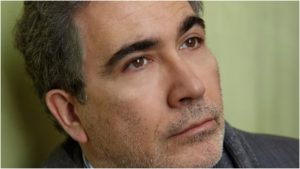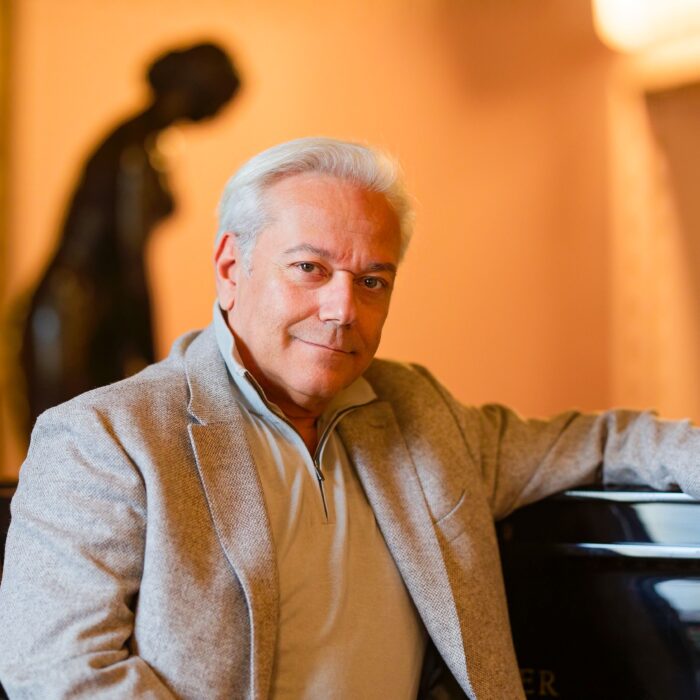
Master At Two Houses – Conductor Carlo Rizzi on Big Projects At Metropolitan Opera & Welsh National Opera
By David SalazarMaestro Carlo Rizzi has led over 180 performances at the Met and when all is said and done in 2017-18, he will have topped 200 performances with the company. He has led works by such composers from a vast range of Italian composers including Puccini, Verdi, Donizetti, and Rossini. Of all the works he has conducted, “La Bohème” has been in his care a whopping 58 times, more than any other opera.
He has seldom taken forays into the works of Bellini, with “Norma” his only such incursion at the Metropolitan Opera. While he conducted the work seven times at the Met back in 2001, this season he will nearly double that output, leading such sopranos as Sondra Radvanovsky and Marina Rebeka in the title role.
First Stop: Mount Everest
The work, of course, is renowned for the towering title role, often seen as the Mount Everest of opera roles. And for Rizzi, the role’s challenge doesn’t just lie in the singing.
“What is important in Norma is that there are two sides. The personal and public. There is the woman and priestess. There is the leader and the mother. There are all these different sides and they have to come out in the score,” he emphasized. “It is so difficult because starting from her first phrase, with ‘Guerra’ on a low note needs to be said in a specific way. And then two pages later is ‘Casta Diva,’ which is such a beautiful line. And then the cabaletta is so different. So, the main thing for a great artist is the flexibility in the voice to portray the different parts of the same character.”
Bellini’s music, always puttig the melody before anything else, also presents major challenges for the conductor, with Rizzi noting that his main task is to “keep the flow because Bellini can’t be done without great singers. That’s counterproductive. At the same time, it is essential to channel the direction of where the piece goes. In a way, it is more important in Bellini than in Verdi because if you only accompany the singer, it can get rather stuck. But even if the orchestration is simple and repetitive, it is the engine that pushes the machine forward.”
Next Stop: Next Century
One day after his first “Norma” performance of the season, Rizzi shifts gears and takes on the work of a vastly different composer and opera. There is almost a 100-year gap between the world premieres of “Norma” and Puccini’s “Turandot,” a work that the maestro has led 10 times in New York, all the performances coming 15 years ago.
Where Bellini is all about line and finding keep the “engine running,” Puccini’s music is an engine very much in need of a capable conductor that can weave its numerous pieces together into a strong collective. Jumping from one to the other can be taxing on some conductors, but Rizzi is quite excited with the challenge.
“I love both of these operas,” he noted. “They require different sounds and conducting from the conducting.”
Whereas the challenges in “Norma” lie with the complexity of the character, Puccini’s masterpiece poses a dramatic issue.
“After the death of Liù, it is so hard,” the conductor revealed. “For me, Puccini did such a masterpiece with the death of Liù, that to make the happiness of the two lovers believable, I find it so hard. I am not saying this because it is not Puccini’s finale. I would have paid money to see what Puccini would have done, but I think he gave so much to Liù that that will always haunt the two lovers.”
It’s Destiny
In addition to his big season at the Met, the maestro is also slated for another major set of performance at another important company – the Welsh National Opera. He was music director of the organization until 2001 and was recently appointed Conductor Laureate in 2015.
This season, he kicks off a project that will see him bring three of Verdi’s most political operas to the stage. This coming season is “La Forza del Destino,” promptly followed by “Un Ballo in Maschera,” and finally, “Les Vêpres Siciliennes.” Rizzi has never taken on “Forza” in his career, noting that it is the only main opera of Italian repertoire that he hasn’t conducted.
The opera sprawls about jumping between intimate scenes between the main protagonists and larger tableaus showcasing the world and context they exist within. For Rizzi, this is where Verdi’s greatest mistake and success is with the opera. The contrasting scenes give the opera scale, but also make the structure rather uneven and sprawling at times. Over the years, conductors have turned to different performance practices, the opera itself having no “definitive” version. As one might expect, Rizzi is also making some structural changes to the work to focus the plot more.
“I think that Verdi had a bit of a problem with the storyline of the opera. In a way, we are looking to make more sense of the space and the timing onstage,” Rizzi noted. “For example, in the later version we have the battle, Alvaro gets injured, and then the page after, we have him safe and sound. So what we did was take the character numbers and choruses which add a lot to the drama and what they did was to put some of that between the two pieces so there is more separation. This is my personal opinion, but the structure is the one Verdi had in the first version.”
He also noted another example that rarely ever gets mentioned.
“At end of baritone aria, there is a phenomenal chord that in the original version doesn’t resolve. It is a great idea of not finishing this scene so we have arranged a bit. This is to give the plot stronger coherence.”
When taking on a score for the first time, as is the case with “Forza,” Rizzi’s always turns to the music written.
“Basically, I go through the score and just get a general look at what it is. Then I start to look at the style and construction and the way the composer organized the material,” he noted.
From there he turns to the text, but places a specific emphasis on recitative.
“The arias and the duets work on their own,” Rizzi explained. “But the scena are essential to give you an idea of what to bring forward.”
He noted that emphasis on recitative was also essential because he had to take into consideration singers from all over.
“Sometimes with singers not native to the language, there might be issues with understanding of phrasing or where to the direction of the phrase is going. So this is something I study a lot.”
Of course, one of the beauties of studying a score for the first time is the discovery of its finest musical moments. “Forza” is laden with many, but for Rizzi, there is nothing more moving than “La Vergine degli angeli.”
“It is magical. It is so simple. Harmonically or rhythmic or melodically it is not incredibly complicated. But it is so effective and that for me will be a magical moment.”
Looking forward, the conductor has great interest in trying his hand at rarely performed Italian operas. But of course, he can’t help but look to another type of repertoire for his future inspiration.
“Like every conductor, I am very quietly and slowly looking at the [Ring des Nibelungen],” he admitted. “But I don’t even know if I will do it my lifetime. It is so big, so huge. It isn’t particularly difficult to conduct, but to give the span of these 12 hours require a lot. So I am slowly thinking about it.”


